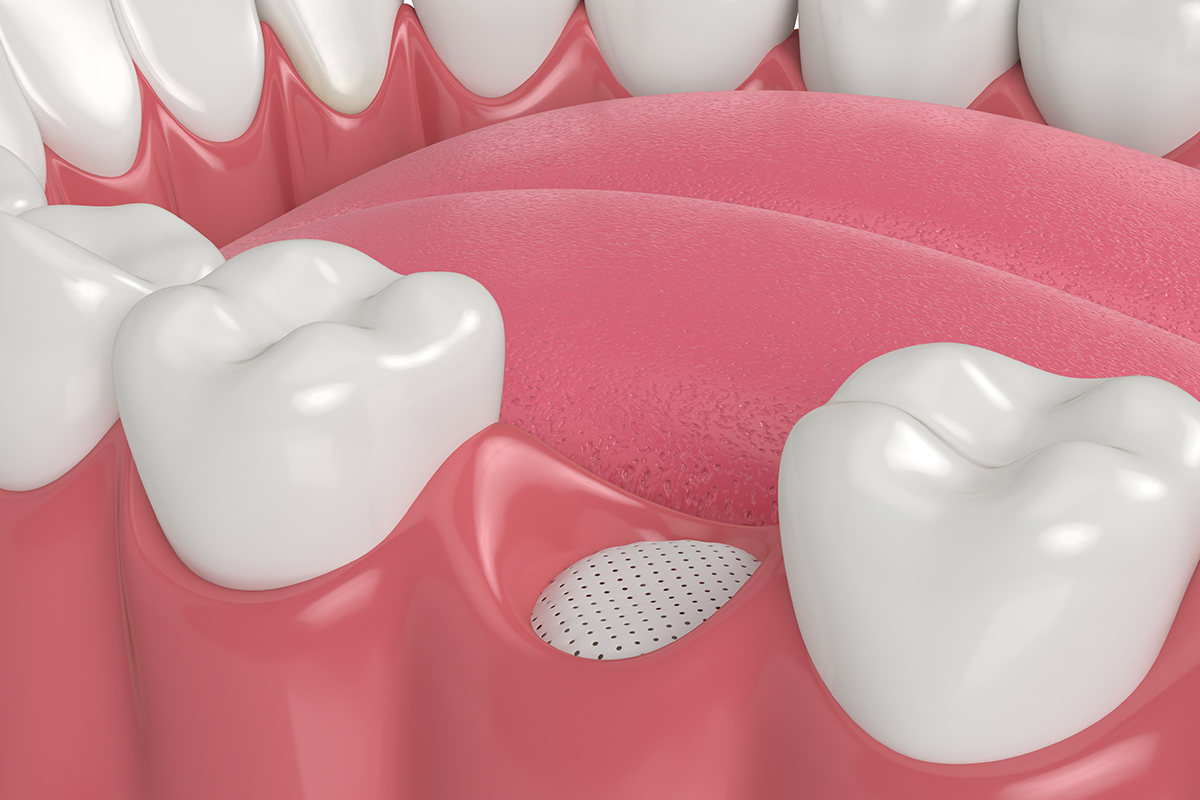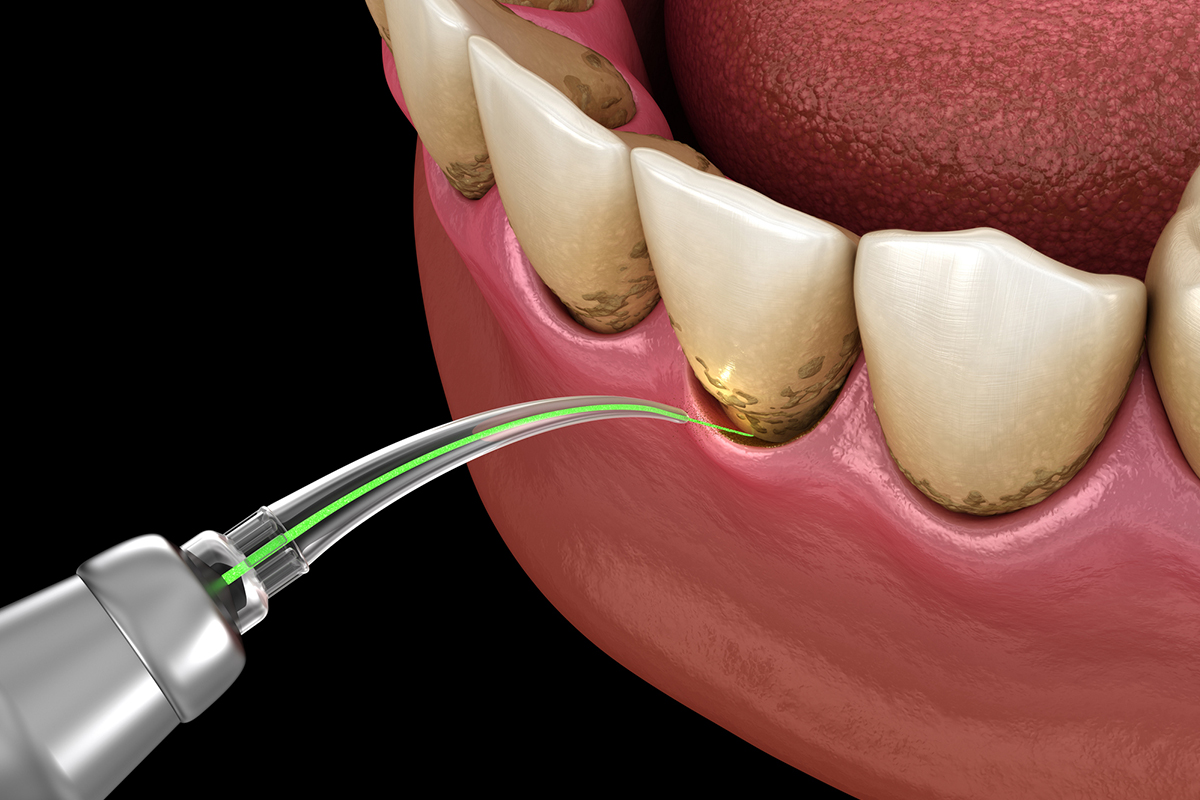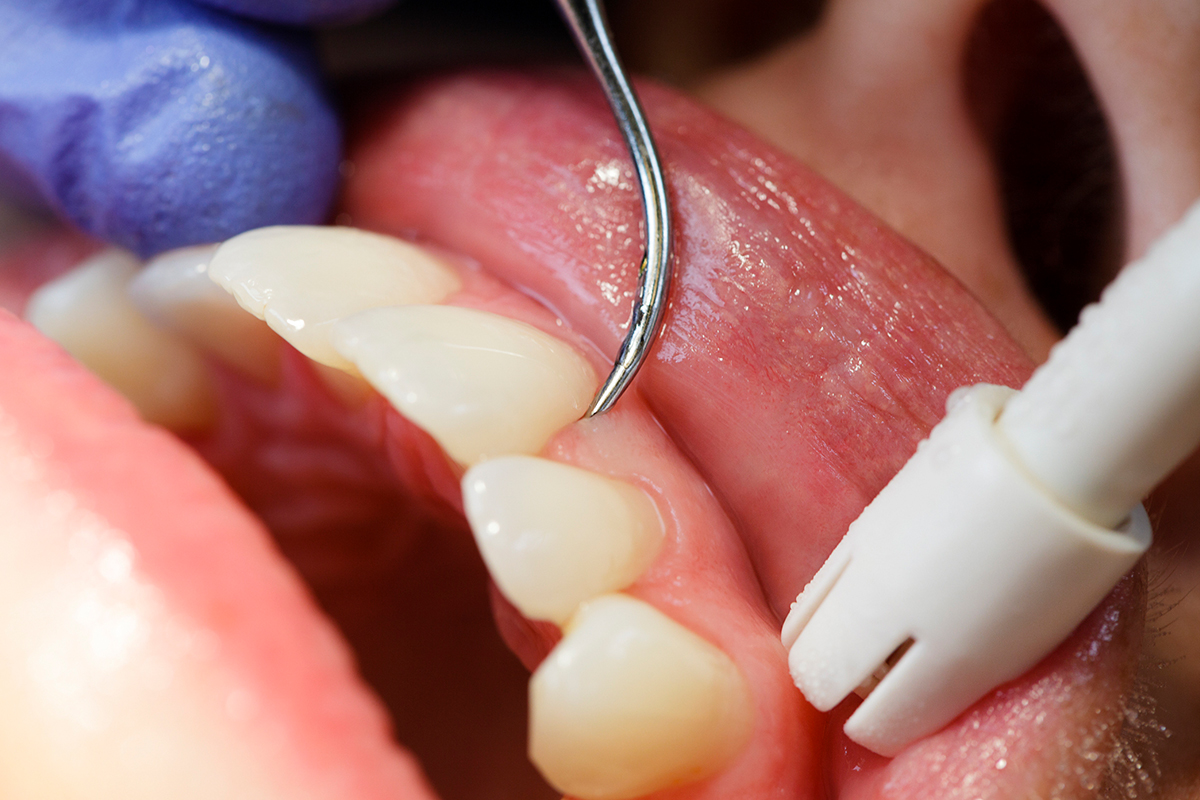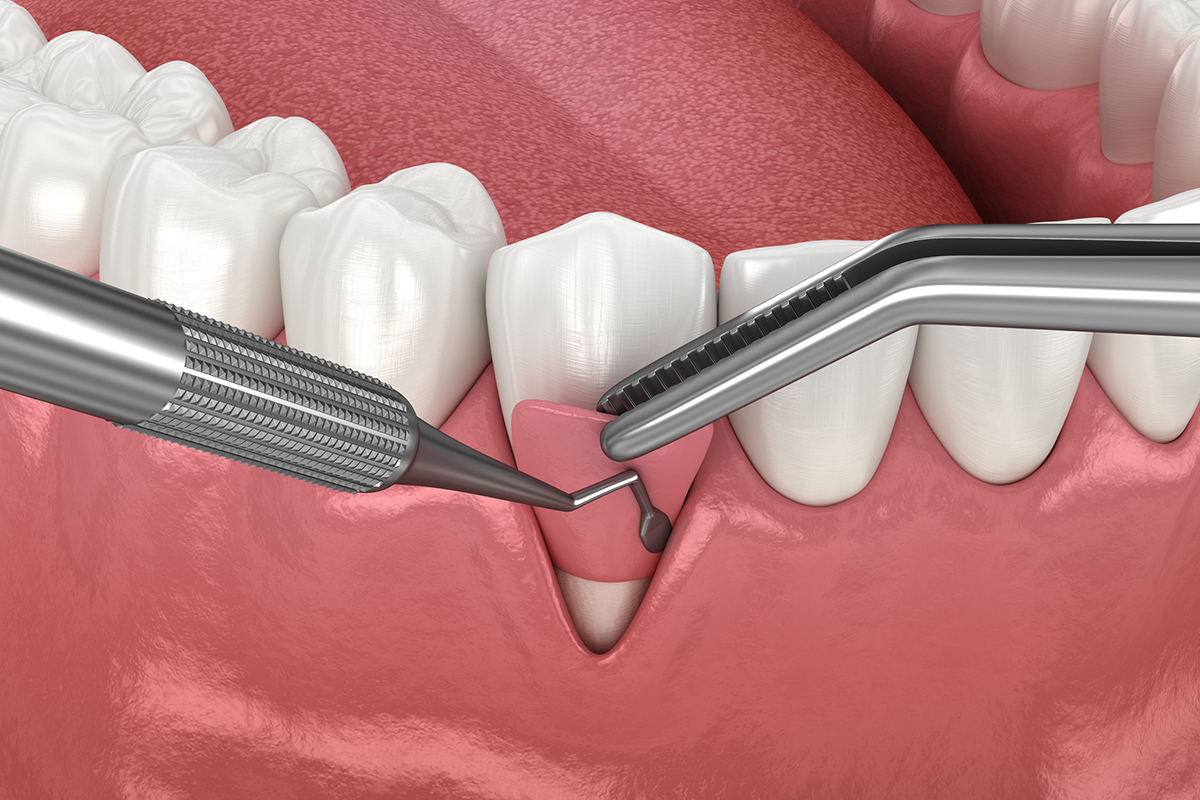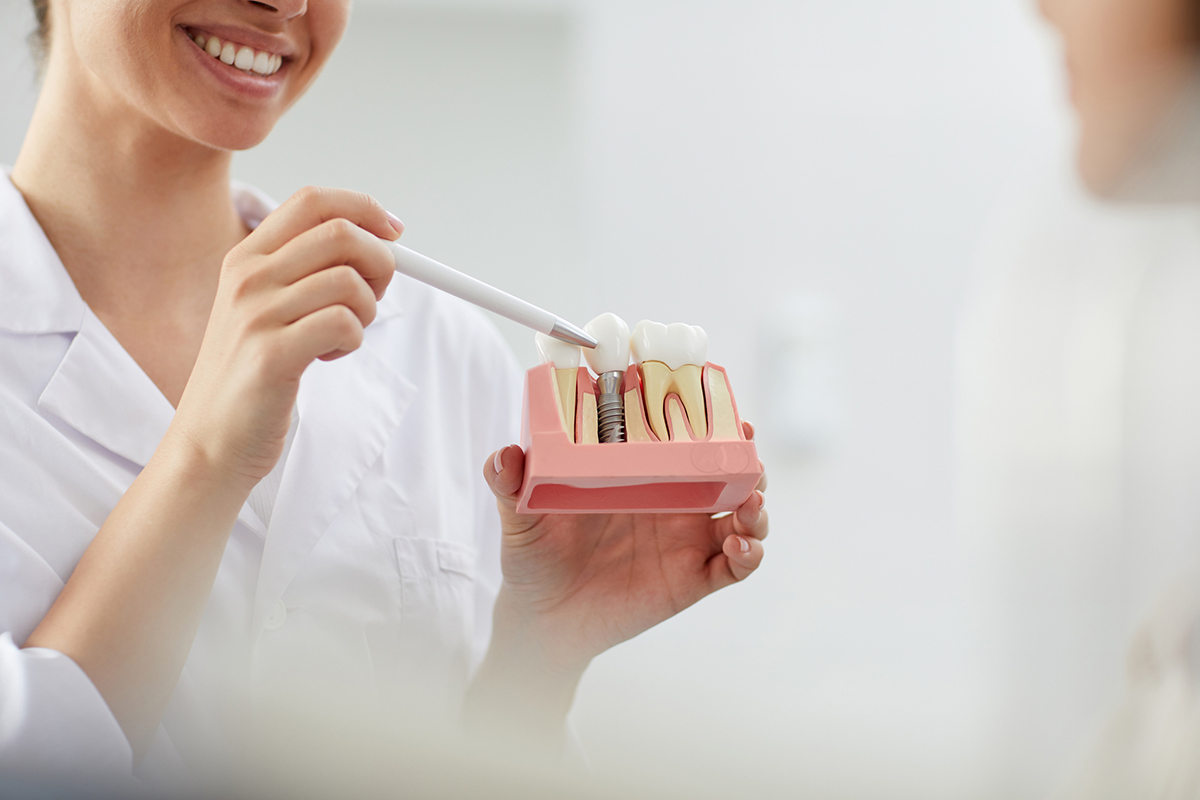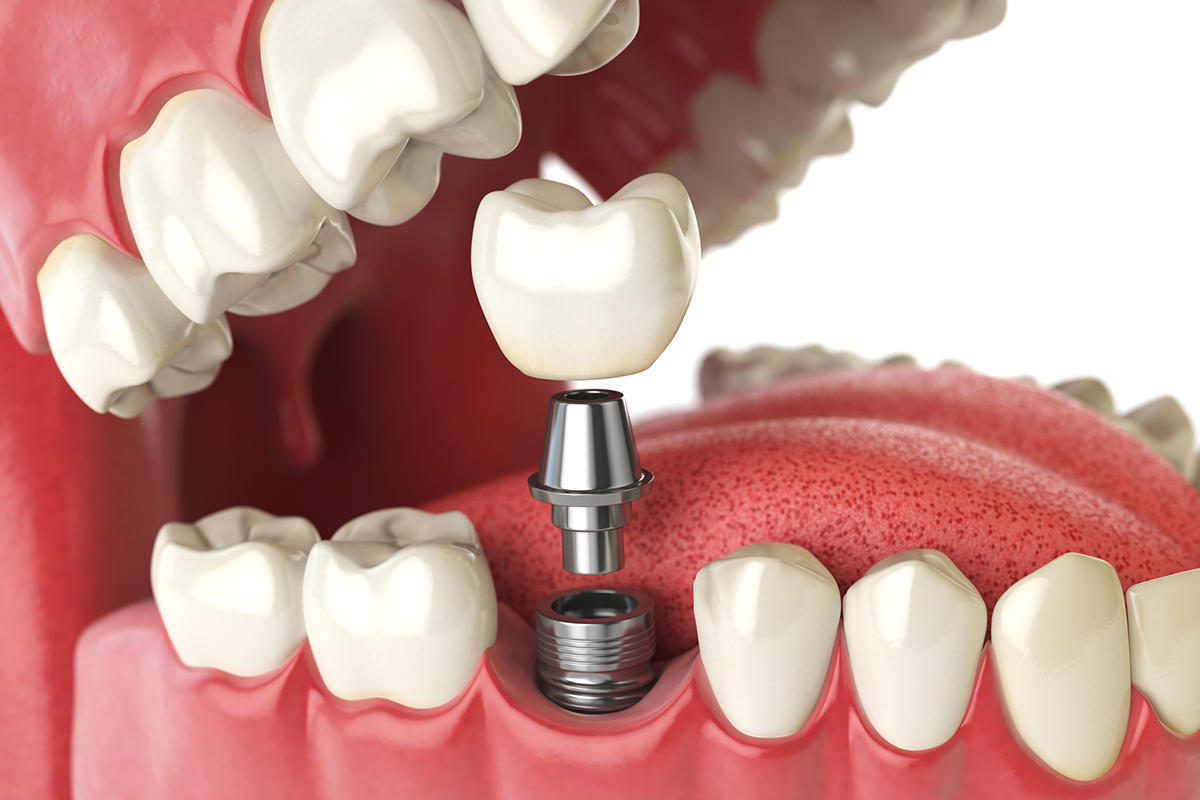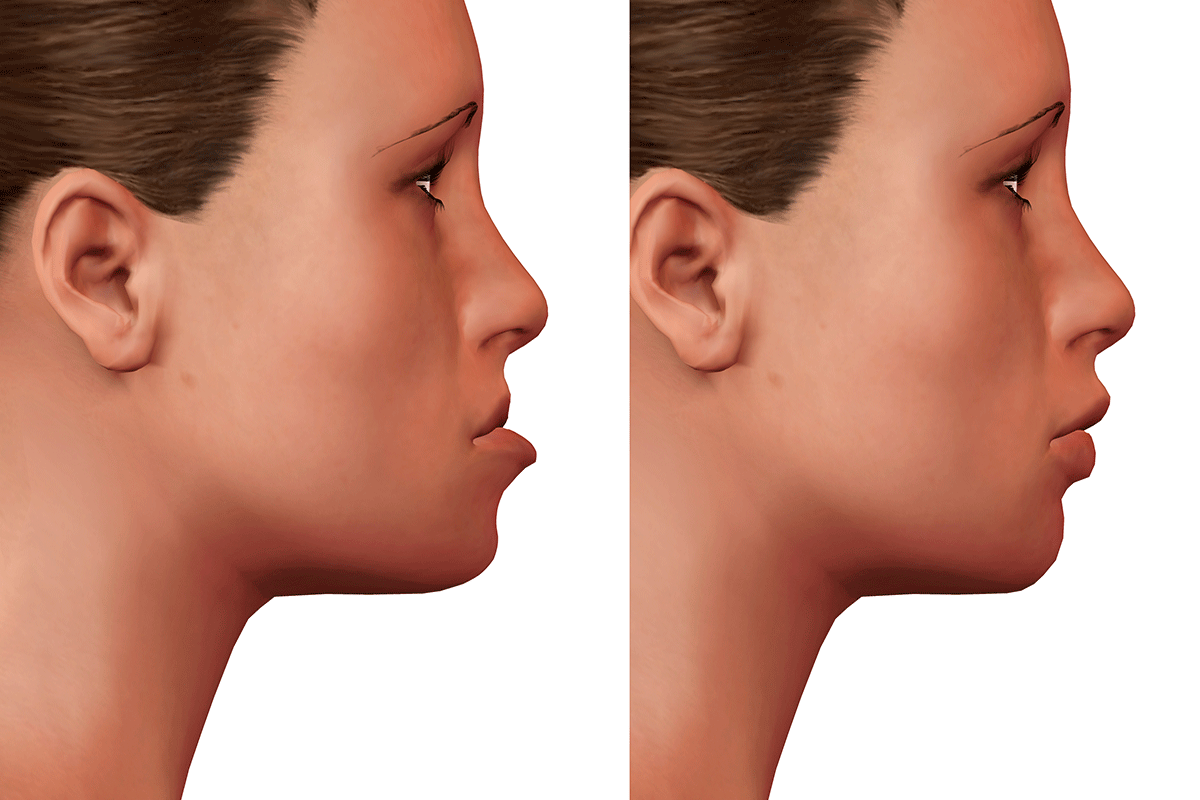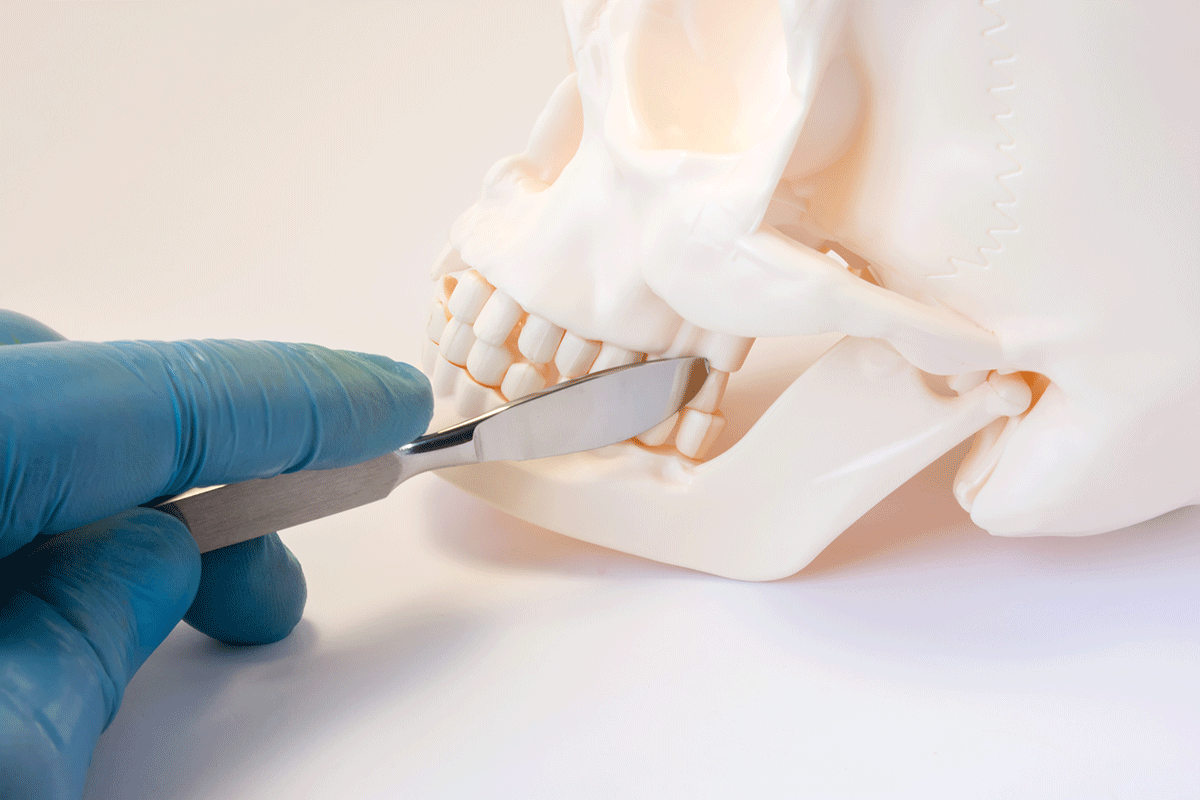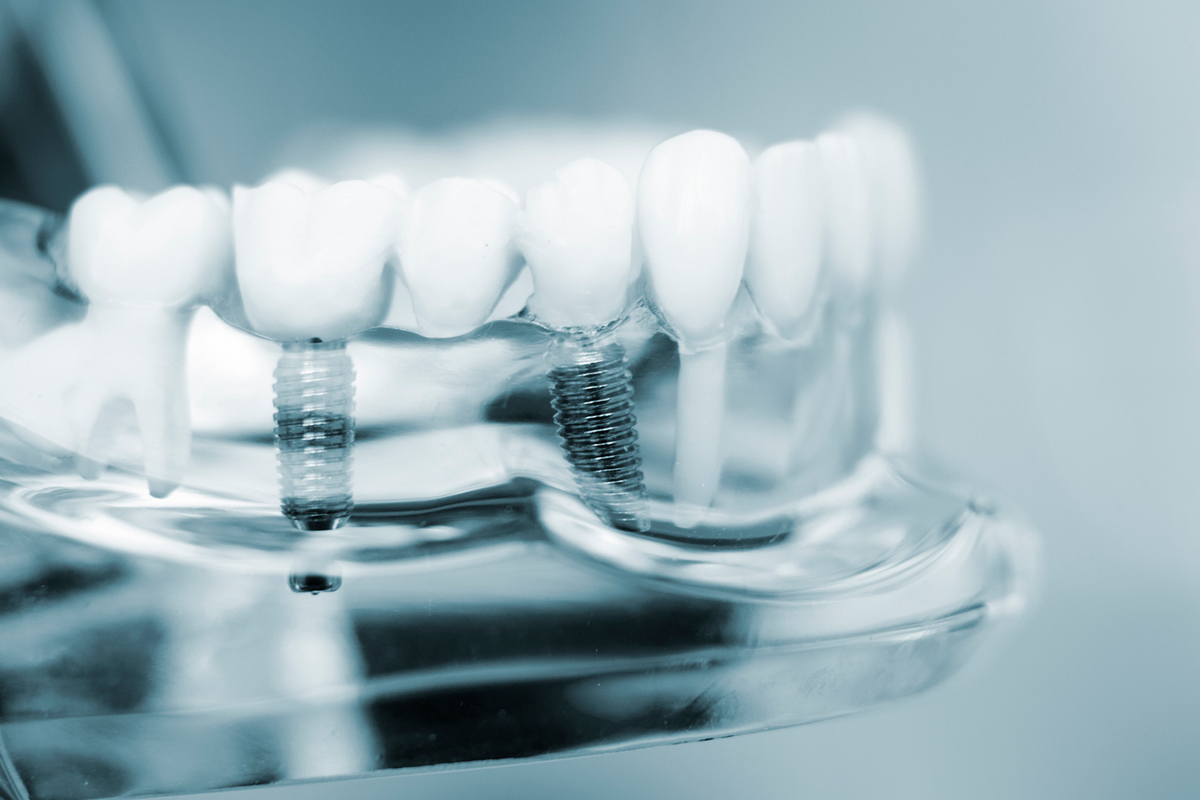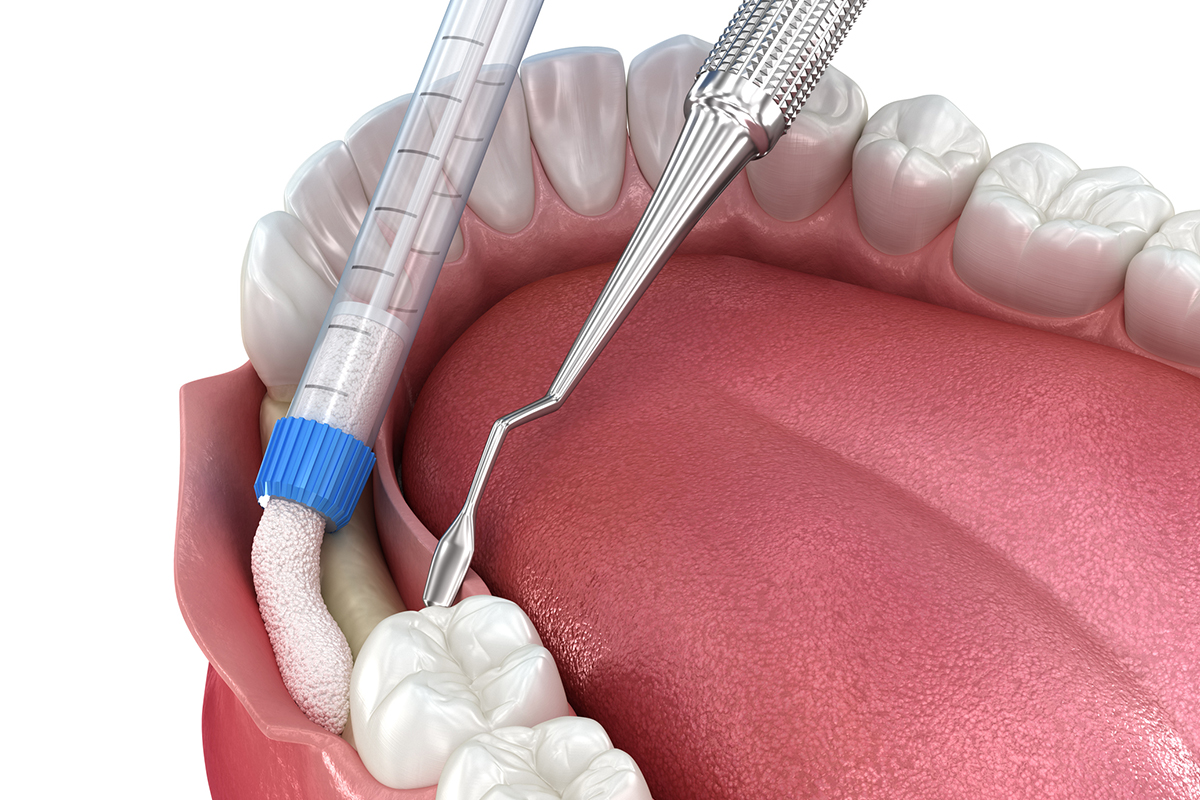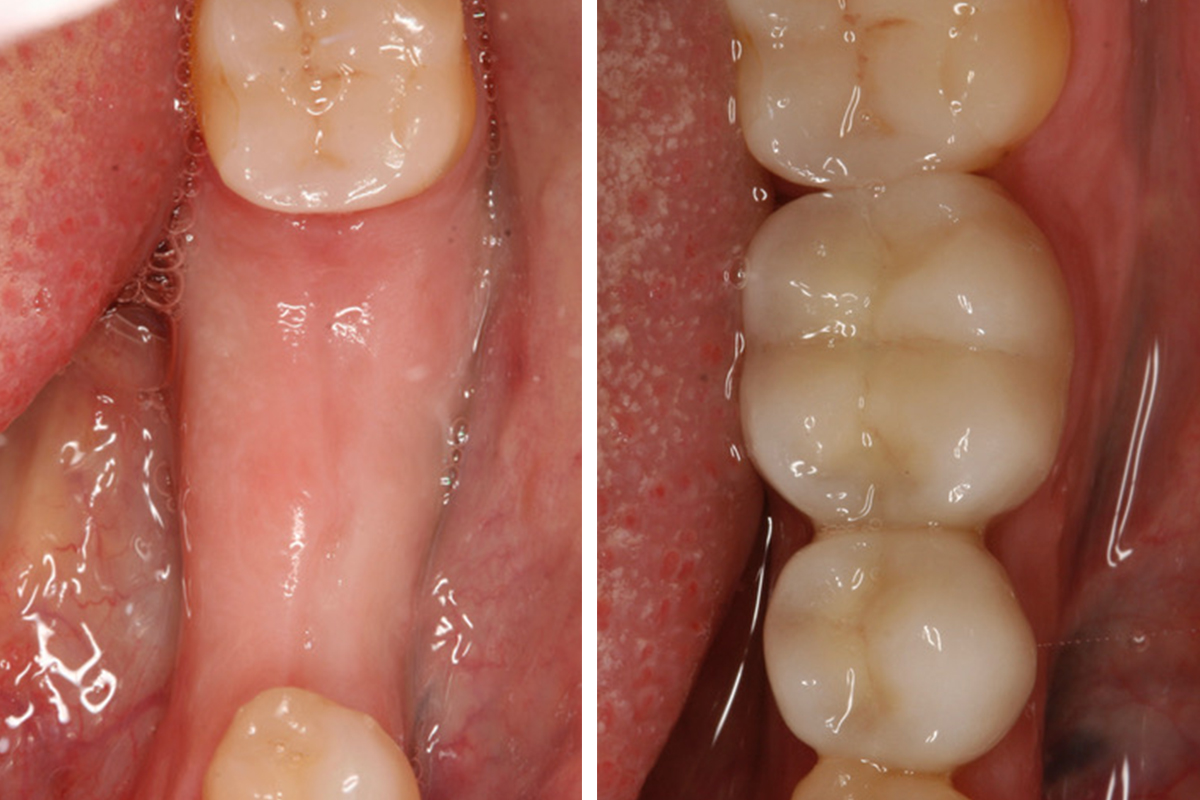-
A confident smile can make a lasting impression, but for some people, excessive gum tissue causes what’s known as a “gummy smile.” This condition can make teeth appear smaller and affect how balanced your smile looks. Fortunately, modern periodontal techniques can correct this concern. With cosmetic periodontal surgery, you can
-
When you are diagnosed with periodontal disease, also known as gum disease, your treatment plan will be tailored to your specific needs. For many patients, the first line of defense is a non-surgical procedure called scaling and root planing. This treatment is often referred to as a “deep cleaning” and
-
Losing a tooth can be a concerning experience, affecting not only your smile but also your overall oral health. In many situations where a tooth is at risk due to bone loss, patients often wonder what options are available to save it. Bone grafting is a highly effective and common
-
When it comes to dental health, we often concentrate on brushing, flossing, and routine check-ups, but some conditions require more specialized attention. One such procedure you might not know about is a frenectomy. At first glance, the term may sound complex, but the procedure itself is straightforward and can have
-
Gum disease is a prevalent condition that affects many adults, ranging from mild gingivitis to more severe periodontitis. While some cases can be managed with non-surgical treatments, there are situations where advanced care becomes necessary to restore oral health. One of these advanced procedures is known as flap surgery. At
-
Gum health plays a crucial role in maintaining your overall oral health. If you’re dealing with gum recession, gum grafting might be the solution you need to restore both function and appearance. This advanced periodontal procedure is specifically designed to address the negative effects of gum recession, which can expose
-
The decision to undergo a full mouth dental implant procedure is a significant step toward restoring both your smile and oral function. While the procedure itself involves advanced technology and expertise, the recovery process plays an equally vital role in ensuring your implants last and function properly. At Schrott Perio
-
Periodontal disease, commonly referred to as gum disease, is a progressive condition that affects the tissues supporting your teeth. If left untreated, it can lead to tooth loss, significant discomfort, and other systemic health issues. At Schrott Perio Implants, we frequently encounter patients who want to know if this condition
-
When it comes to oral health, understanding the specialties within dentistry can help you make more informed decisions about your care and overall well-being. A periodontist is a dental professional who specializes in preventing, diagnosing, and treating gum disease and other conditions affecting the supporting structures of the teeth, such
-
Periodontal disease, or gum disease as it is commonly called, is one of the biggest threats to your oral health. Gum disease can lead to a wide variety of problems from receding gums and loose teeth to severe health conditions such as heart disease and diabetes. The good news
-
Bone grafting is a dental procedure that provides a solution for bone loss in the jaw. Bone loss is common for patients who have one or more missing teeth. Due to the absence of a tooth root in the socket, the support structures begin to deteriorate. The jaw bone is
-
Are you considering getting dental implants? Where replacement teeth are concerned, dental implants are the gold standard. Providing a natural look and function, dental implants are the highest quality option for dental prosthetics. They have a success rate of 95-98%, but only with proper placement. This is why choosing a
-
When it comes to replacement teeth, dental implants are the gold standard. Providing a natural function and appearance, dental implants allow you to eat the foods you love and smile with confidence. If you need to replace one or more teeth, you may be wondering how much dental implants
-
A tooth extraction is typically a minor procedure. In most cases it is relatively quick and simple, but in other cases it can be more complex. If you have an upcoming appointment for a tooth extraction, you may be wondering if you can drive yourself home afterwards. The short answer
-
Many dental developmental milestones are met in the first 25 years of life, with the last being the emergence of the wisdom teeth. If your periodontist has recommended removing your wisdom teeth, you may be wondering if the procedure is really necessary. In this post, we’ll discuss what wisdom teeth
-
Getting dental implants requires at least three appointments, spread out over several months. So, what can you eat during your treatment to get dental implants? And how long after your dental implants can you eat normally? Read on for answers to common questions about eating after dental implant surgery. What
-
Dental implants have helped millions of people in the U.S. to enjoy a beautiful, complete smile, improved oral health, and improved self-confidence. As the only restoration for missing teeth that mimics the function of a natural tooth, dental implants are widely regarded as the premium choice for replacing missing teeth.
-
Tooth extractions are very common, and side effects are rare. You can expect to eat within a couple of hours after the local anesthesia has worn off. However, you should not eat anything hard or crunchy for at least the first two weeks. For more complicated extractions, such as impacted
-
Although periodontal disease is widespread, it also poses a serious risk to not only your oral health but your overall health. Those who do not see a dentist for regular exams and cleanings may begin to suspect periodontal disease when symptoms such as bleeding gums, tenderness, loose teeth, discolored gums,
-
If you’re interested in the longest-lasting dental restoration to restore missing teeth, you’re ready to consider dental implants. Dental implants are extraordinarily durable, often lasting several decades or even your entire lifetime. So, why do dental implants last so much longer than bridges or dentures? Read on to learn why
-
If you need the specialized services, skills, and expertise of a periodontist, you may be referred to a particular practice by your dentist. If your dentist refers you to a specific periodontist, it is likely because that specialist has earned the respect and trust of both the dentist and the
-
Nearly half of adults in America have some form of gum disease by the time they turn 30. In its early stages, gum disease is called gingivitis, and can often be reversed. However, as the disease progresses (periodontal disease) the condition cannot be cured but can be successfully managed by
-
If you tend to conceal your smile or chuckle behind your hand because of missing teeth, dental implants may help restore your confidence. These small yet mighty restorations can replace missing teeth and give you back your smile. Whether you want to learn more about implants for yourself or just
-
Dental implant technology has progressed over the years to the point where some patients can now receive implants in a single day. This innovative procedure means that a person who is missing all teeth in an arch can enter the dental office without teeth and leave it with fully functional
-
A dental implant is a restorative solution for people who have one or more missing teeth. The popular treatment can restore so much more than just the function of your teeth. It can also bring back confidence in your smile and make everything from talking to chewing easier. Given their
-
Dental implants are false teeth that function and resemble natural healthy teeth. Patients considering treatment options for missing teeth often choose dental implants thanks to their durability. According to research available through the National Institutes of Health, when patients properly care for their implants, they can remain in good condition
-
Are you missing one or more teeth? If so, you may be researching options for replacing said missing teeth. A missing tooth doesn’t just have a negative impact on your appearance. Without treatment, missing teeth can lead to such health issues as difficulty chewing or speaking, loss of jawbone, and
-
Bone grafting is a procedure that regenerates lost bone tissue. If you need bone grafting, you may be wondering how much the procedure costs in your area. Here’s what you can expect for a bone grafting procedure in Belmont, Massachusetts. What is Bone Grafting? During a bone grafting procedure a
-
If you’ve lost a tooth due to injury, periodontal disease or dental decay ask a dental health professional about replacing your missing tooth with a dental implant. Although other types of false teeth exist, a dental implant is the most popular option for the following reasons: A dental implant
-
Dental implants have become the go-to source for tooth replacement. While they have been around for decades, they are just now becoming more readily accessible to everyone. And that leads to a lot of questions – and misconceptions. So, to clear the air, here are 4 myths about dental
-
Dental implant treatment is a popular option for patients missing one or more teeth. Benefits of dental implants include: Aesthetics: Dental implants resemble natural teeth, impressively restoring a patient’s smile. Functionality: Dental implants don’t merely look real. They also function like natural teeth, addressing chewing difficulties, speech troubles, and other
-
Odds are that when it comes to your smile, you pay more attention to your teeth than the gum tissue around them. And while preventing cavities is certainly important, you don’t want to ignore your gums; they play a more important role in your oral and overall health than you
-
Receding gums can be a bigger problem than they appear to be at first. Not only can they make your teeth seem much longer than they should, but they might also lead to sensitivity whenever you eat something hot or cold. So, what can you do about this common dental
-
You may not think about your gums very often, but they play an important role in keeping your smile healthy. However, thin gum tissue or gum disease can cause the gums to recede, meaning they pull back from the teeth and expose the roots. When this happens, you’ll probably have
-
One advantage of dental implants is they are simple to maintain. Many patients find it similar to taking care of their natural teeth. Flossing can require a little more thought because implants are attached differently than natural teeth. Your periodontist can provide tips for flossing dental implants after permanent placement.
-
When you replace a tooth with a dental implant, you’ll probably be happy to know that your new restoration is in no danger of suffering from decay or cavities. But what about the stains that leaves your natural teeth looking dull? Dental implant restorations are known to be stain resistant,
-
Any dentist will tell you that dental implants are the top modern-day solution for missing teeth. However, they are by no means a new solution. Not only have the dental implants that you’re familiar with today been around for decades, but implants have existed in one form or another for
-
The decision to get dental implants wasn’t one you made overnight; you spent quite a bit of time researching it and spoke to your dentist and periodontist at length about the topic before you decided to move forward. However, before the day of your planned dental implant surgery, you’ve discovered
-
Scaling and root planing are common procedures used to treat gum disease. When they’re recommended to you, it’s usually because your teeth and gums are already at risk. But of course, every procedure has a cost to consider, and it’s important to have a firm idea of how much you’ll
-
Over 47% of American adults suffer from gum disease in some form, but not everyone grasps just how serious the condition is. You may mistakenly assume that the damage will be limited to the gum tissue itself, but it can also have a negative impact on other areas, such as
-
Before you receive a dental crown or another type of restoration, you might be told that crown lengthening has to be performed first. It’s a relatively simple surgery, but you may be confused about why it’s even necessary in the first place. Rest assured, though, that it is only recommended
-
What kind of treatment are you expecting for gum disease? Obviously, procedures to reduce the level of bacteria in the mouth – such as antimicrobial therapy or scaling and root planing – will likely be utilized. However, in the truly severe cases where a lot of damage has already been
-
Gum disease has already been shown to have a connection with heart disease, strokes, respiratory infections, and other potentially serious medical conditions. Nowadays, though, there’s a fresh new health concern that could potentially be made worse by a gum infection: COVID-19. As the COVID pandemic continues, more and more research
-
Most people seem to be more concerned with their teeth than their gums. Perhaps that is why more than half of all Americans suffer from some form of gum disease, with many of them not even realizing it. When you first notice early warning signs of gum disease – such
-
You can have the straightest, brightest teeth and brush them thoroughly every day, but if you’re not taking care of your gums, your smile will suffer. Gum disease occurs when plaque and tartar build up under and along the gum line, causing infections that can lead to the destruction of
-
For the fourth year, Boston Magazine has compiled a list of the top dentists in the area who can be counted on to consistently bring patients the personalized, high-quality care that they deserve. For the fourth year in a row (and every year since the award was conceived in 2017),
-
When it comes to oral hygiene, it seems like most people pay close attention to their teeth but don’t focus much on their gums. While preventing cavities is certainly important if you want to keep your natural smile intact for the rest of your life, you also need to be
-
If you’re being careful about protecting your health, then you’re probably already aware of the various consequences of heavy drinking over the long term, including an increased risk of cancer, high blood pressure, a weaker immune system, and mental health issues such as depression. What you may not realize, though,
-
If you’re suffering from severe gum disease or teeth that are sensitive due to gum recession, it’s best to find a specialist that is more experienced than a general dentist in performing the procedures you’ll need to restore your overall health and save your smile. That means you’ll have to
-
You’ve probably heard plenty about dental implants in Belmont – the one form of tooth replacement that can make up for the roots that were lost along with your natural teeth. But not everything you hear is necessarily true, and it’s important to make sure you have all the facts
-
Patients who have lost multiple teeth or are on the brink of having some removed usually have one chief concern: how to get their complete smile back. Partnering with your dentist or periodontist will help to ensure you get the right treatment for your needs and preferences. However, it’s a
-
Periodontal disease, also known as periodontitis or simply gum disease, is a very common condition that primarily affects older adults. It is caused by infection and inflammation of the gum tissue and can lead to bone and tooth loss and also increase a person’s risk for a number of health
-
A periodontist is a specialist in the gums, which are the gateway to a healthy smile. Millions of Americans suffer from gum disease, an issue that can have serious long-term health effects — like missing teeth, heart problems, and more. Early intervention is the best way to prevent the serious
-
Gum disease is a serious issue that requires prompt treatment to keep your smile healthy. The best method of action is to prevent it from occurring altogether — and catching the early warning signs on time can help your dentist work with you to reverse the infection to prevent it
-
Dental implants are far and away the best option for tooth replacement. In fact, this procedure is known as one of the greatest advances to be made in dentistry in the past several decades Plus, the success rate of dental implants is more than 95 percent when they are cared
-
From creaky knees to gray hair, we all know the body changes with age — and the mouth is no different. Tooth loss is highly evident, but what people may not notice as much are changes to the gums that gradually occur. However, as you get older, your gums will
-
Many people do not realize how important the gums are to a healthy and attractive smile — but if you have periodontal (gum) problems, you are simply not smiling your best. Gum grafts in Belmont offer a wonderful solution for many patients who are dealing with an irregular gumline or
-
Gum disease is an infection which affects the gum tissue surrounding the teeth. It is far more common than you might think, and its effects can be very serious — which means it is time to dispel the most common myths about this oral health problem. Below, read about the
-
Do you frequently notice bloody gums when you brush or floss your teeth? Or, do find that your gums bleed at random times throughout the day? If the answer is yes, pay attention. Bleeding gums are most frequently caused by periodontal disease in Belmont, which can have serious effects on
-
It’s not at the top of most people’s minds, but gum disease can be a silent threat to oral and overall health and wellness. Its effects are devastating on an otherwise healthy smile — but fortunately, gum disease can easily be treated with early intervention. Below, find out everything you
-
Do you feel like your teeth look longer than they used to? Are you experiencing worse tooth sensitivity than you have in the past? If so, gum recession may be to blame. This is especially likely if you have had gum recession in Belmont. The effects of this condition affect
-
If you are trying to quit smoking or just trying to curb the amount of nicotine you take in, vaping is widely thought to be a safer alternative. That may be true in some respects, but when it comes to your oral health, we are not 100% convinced. Inhaling from
-
Your mouth is full of good and bad bacteria that usually coexist in harmony. In fact, research shows you may be living with anywhere from 34 to 72 different strains at once. When everything is in balance, the good bacteria keeps the not-so-good in check and all is well. However,
-
There may come a time when you need to have a surgical procedure to protect your periodontal health. If that is the case for you right now, you are in excellent hands with your periodontist in Belmont. Taking the right steps pre- and post-op will help to ensure that you
-
When you have lost one or more teeth, the first thing on your to-do list should be finding a quality replacement. In the case of one or two missing teeth, your options will include dental implants in Belmont or a fixed bridge. The former offers a far better solution most
-
You may think you can skate through life with lax oral hygiene habits for a while, but be careful. Your oral health is closely tied to your overall wellbeing — and letting the former slide can have a big impact on your cardiovascular health, especially. There is a growing mountain
-
Preventing gum disease becomes more of a battle as you age, as does keeping off those few extra pounds around your waist. You know exercise will help with the latter, but what if it could improve your periodontal health as well? It can, according to a report published in the
-
Gum disease. Maybe you don’t think about it much, but this condition is all too common, with current estimates saying as many as half of adults over the age of 30 have it to some extent. Also known as periodontitis, gum disease can wreak havoc on an otherwise healthy mouth,
-
Every year, Boston Magazine puts together a list to recognize the Top Dentists working in the area. These are the professionals who offer true excellence, quality, and caring, patient-focused dentistry. This year, for the second year in a row since the award’s inception in 2017, Dr. Alexander Schrott has been
-
Gum disease is very common in older adults, and in its later stages (known as periodontitis) it can cause the loss of one or even all your teeth. After or alongside periodontal treatment, lost teeth need to be replaced and nothing does the job better than dental implants. Despite what
-
Gum disease is a chronic condition that is indicated by periodontal pockets, or areas where bacteria builds up and makes a home in a space between the gums and teeth. The pocket depths vary based on the severity of the disease; they will be measured to determine the level of
-
Gum disease — it may not be at the top of your list of things to concern yourself with, but the truth is, it’s far more common than you probably think. Even still, a number of myths persist about gum disease. Keep reading to find out what they are! We’re
-
Are your gums bleeding? It’s not uncommon, but it’s nothing to take lightly, either. Spitting blood after you brush your teeth or having it on your dental floss can signify trouble and the need to visit a professional. In this week’s blog post, your periodontist in Boston shares the top
-
Gum disease is a condition that affects nearly half of American adults over the age of 35, according to the Centers for Disease Control. There are different stages and types of the disease, and knowing about them can help you be better prepared to fight this chronic inflammation of the
-
Gum disease is a common chronic condition that affects nearly half of adults in the United States. Left untreated, it leads to tooth loss and has been linked to a number of serious health conditions, like uncontrolled diabetes, cardiovascular disease, stroke, heart attack and even pregnancy complications. Knowing about your
-
Welcome to our new website! Please check here for the latest information.



